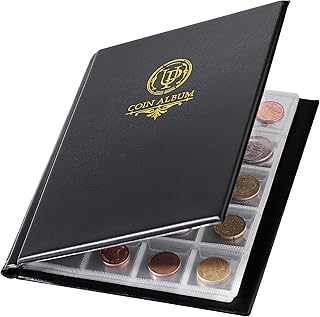Diversifying your investment portfolio is a fundamental strategy for risk management and the potential enhancement of returns. While stocks and bonds are staples for the average investor, alternative assets such as rare coins present a distinctive avenue for portfolio diversification. The allure of rare coins stems from their value being independent of traditional market pressures; they are instead influenced by rarity, historical significance, and collector demand.
Diversifying your investment portfolio is a fundamental strategy for risk management and the potential enhancement of returns. While stocks and bonds are staples for the average investor, alternative assets such as rare coins present a distinctive avenue for portfolio diversification. The allure of rare coins stems from their value being independent of traditional market pressures; they are instead influenced by rarity, historical significance, and collector demand.
The Long-term Potential of Rare Coin Investing
The world of rare coins is compelling due to its historical richness and the potential for significant profits. However, it is a realm that rewards patience and a strategic mindset. The path to success in rare coin investing is paved with knowledge and a long-term perspective, eschewing the frenetic pace of short-term speculation for a more measured and scholarly approach.
Advantages of Rare Coin Investments
One of the prime benefits of including rare coins in an investment portfolio is the layer of diversity they add to traditional asset allocations. As a tangible asset with an intrinsic value often exceeding their metallic worth, rare coins provide a hedge against the volatility of paper assets. Through savvy acquisitions, an investor can use rare coins to potentially reduce risk and stabilize an investment portfolio.
Understanding Market Volatility and Investment Goals
Investing in rare coins does come with challenges; market volatility is not exclusive to stocks. Demand for specific coins can ebb and flow, heavily influencing their market value. As such, investors need to carefully assess their investment objectives and appetite for risk before diving into this niche market.
Gaining Knowledge and Building a Coin Portfolio
The journey into rare coin investing begins with education. Seasoned collectors and numismatic professionals can offer invaluable guidance. Coin shows, numismatic literature, dealer consultations, and coin clubs serve as resources for burgeoning knowledge. A well-rounded coin portfolio, mirroring the principles of general investing, is indispensable for mitigating risk and optimizing returns.
Investment Strategies and Market Pitfalls
While rare coin investing can complement a diversified portfolio, it is not a panacea for short-term gains. Investment tactics such as coin flipping, which entails buying and swiftly selling limited-issue coins, carry their own set of risks and unpredictability. Moreover, investors must remain vigilant against market bubbles that can lead to inflated prices for rare coins, followed by sharp corrections.
The Unique Value of Rare Coins
Rare coin investing stands apart from other investment forms, as each coin's value is influenced by its individual attributes. The diversity in even similar coins – due to nuances in condition and provenance – renders the market more complex and nuanced, demanding a discerning eye for detail.
Education: The Foundation for Successful Investing
For novices in the rare coin market, education is paramount. Finding a knowledgeable mentor, devouring numismatic literature, participating in coin shows, and engaging with coin clubs can lay down the groundwork for a successful investing experience. Understanding the factors that affect coin valuation, such as rarity, condition, and market demand, is key to making informed decisions.
Risks of Counterfeit Coins and the Importance of Certification
An investor must be cognizant of the risks presented by counterfeit or altered coins. To preserve the value and authenticity of your collection, it is recommended to procure coins from reputable sources. Certification by esteemed grading services like PCGS and NGC adds a layer of reliability and confidence.
A Fascinating Hobby with Investment Merits
Investing in rare coins is an endeavor that combines the joy of collecting with the potential for financial reward. It demands a careful and thoughtful approach, where due diligence, market understanding, and reliance on credible numismatic authorities pave the way for triumph.
Navigating the Rare Coin Market
The distinct character of each coin and the fluctuating market dynamics provide an engaging and active investment environment. With proper tutelage, research, and seasoned counsel, one can deftly explore the rare coin landscape and possibly enjoy the fruits of a well-curated collection.
In summary, while rare coins should not be viewed as a replacement for traditional investment vehicles, they do offer the prospective benefits of appreciation and portfolio diversification. A disciplined investment approach and robust knowledge of the rare-coin market are critical to leveraging the advantages that this niche asset class can offer. Whether as a diversion or a serious investment, rare coins invite both novices and experts to participate in a market that is as diverse and nuanced as the coins themselves. Always prioritize authenticity and purchase from trusted dealers to ensure the long-term integrity of your collection.
Information for this article was gathered from the following source.




